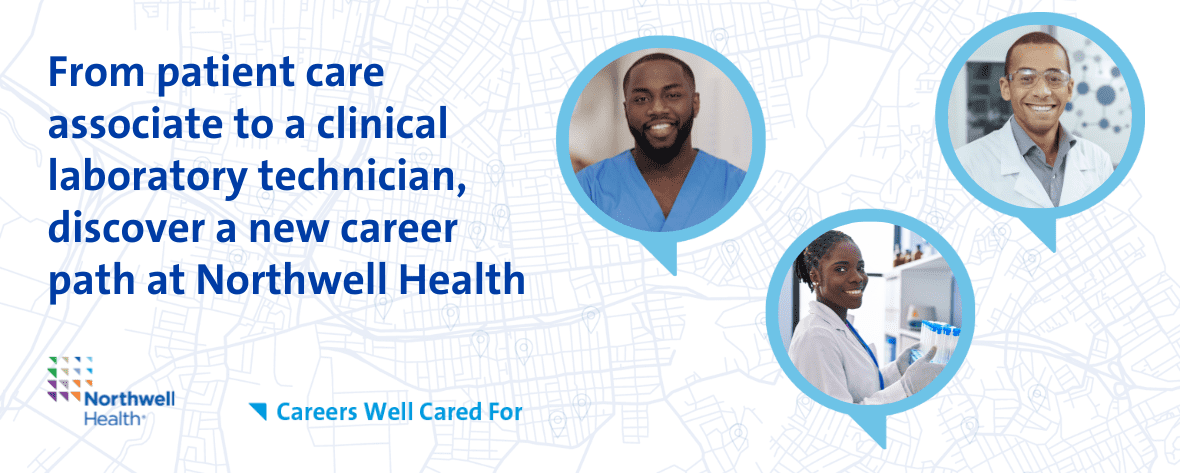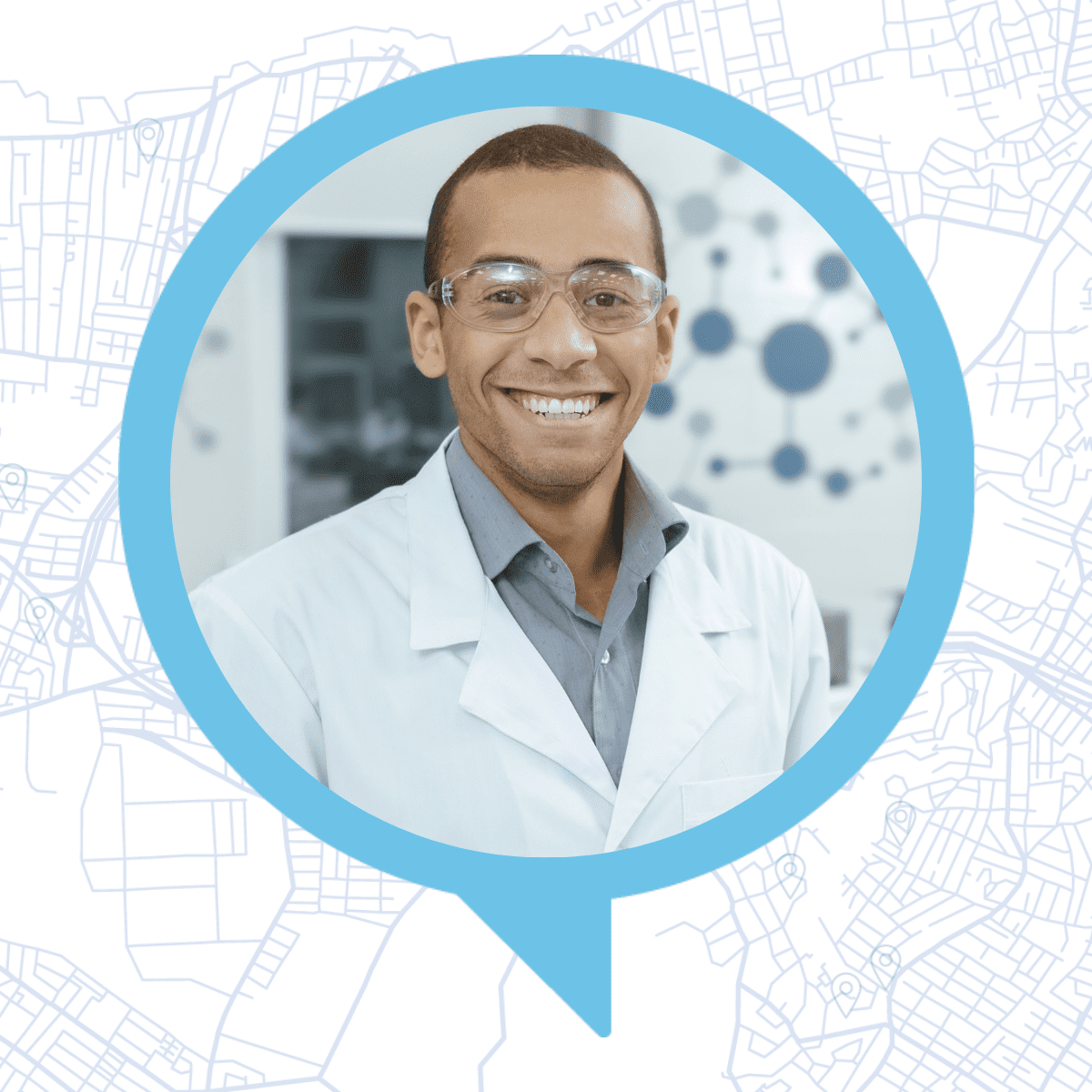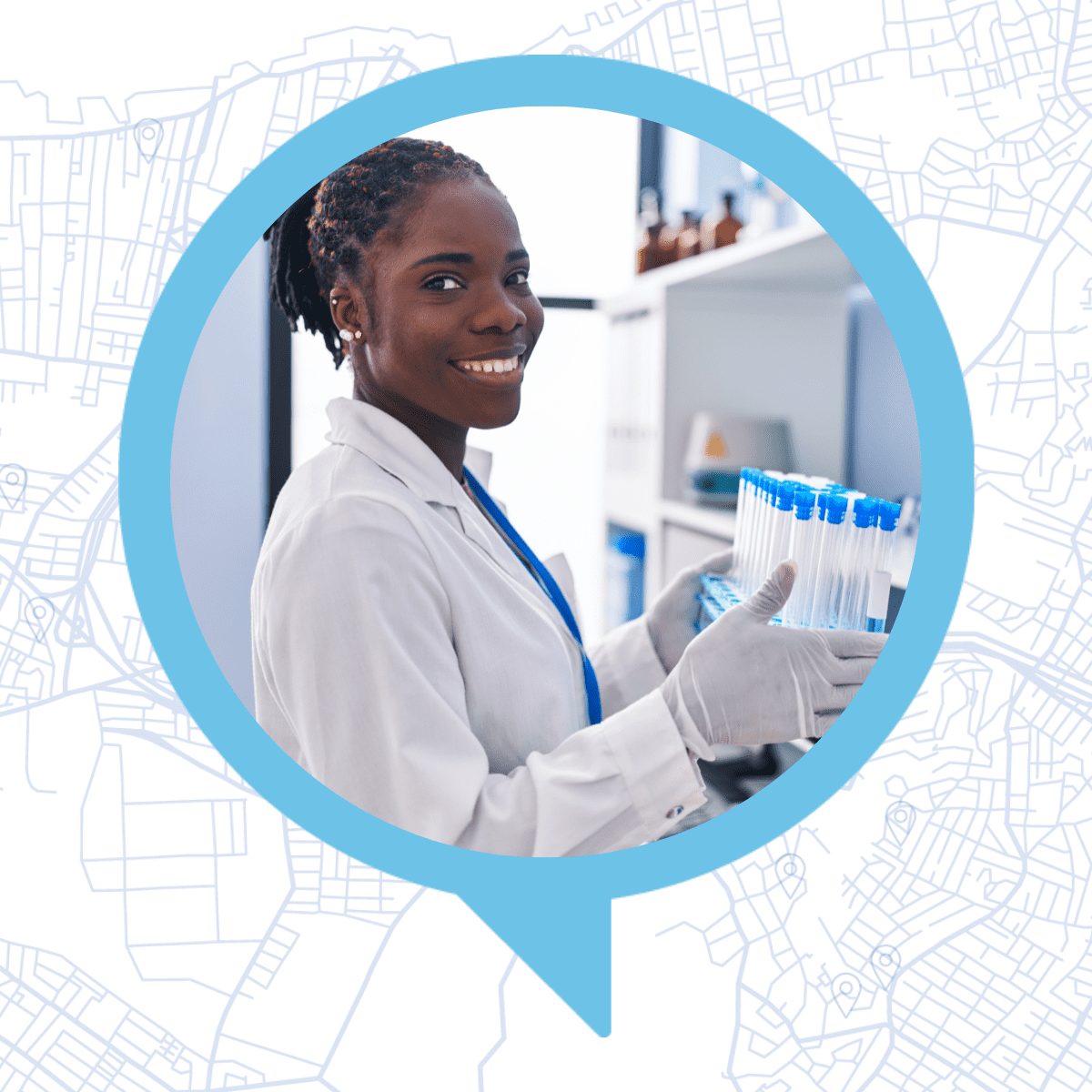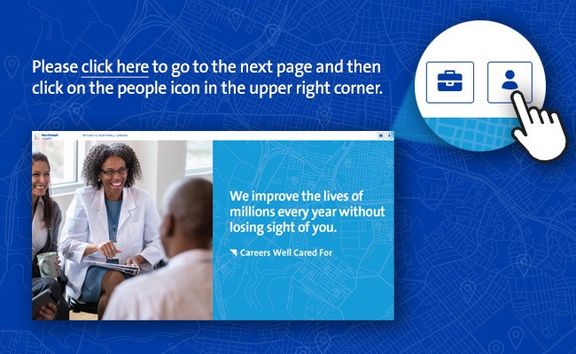

From patient care associate to a clinical laboratory technician, discover a new career path at Northwell Health
Are you looking to grow into a career in clinical laboratory? At Northwell, our team members can advance their careers, both clinical and non-clinical, through various personal and professional development programs, including educational opportunities through our Center for Learning and Innovation, mentorships, Business Employee Resource Groups (BERGs) and more.
Below, you can explore one of the many ways you can grow from a patient care associate to a clinical laboratory assistant to a clinical laboratory technician. For the complete job profiles of each role, we invite you to visit NorthwellCareers.com or click the link below to get started on this career journey as a patient care assistant and discover a career well cared for at Northwell today.
View our available patient care associate roles today.
Patient care associates provide direct care as assigned for a designated group of patients. These team members perform functions requiring skill and competence such as, but not limited to phlebotomy, EKG, obtaining specimens and cultures, activities of daily living and simple wound dressings and vital signs. They also share accountability for quality patient outcomes.
- Requires a high school diploma or equivalent.
- Requires one (1) to three (3) years of relevant experience.
As you move along your career path from a patient care associate, you can grow into a clinical laboratory assistant by pursuing various paths, such as working toward an associate or bachelor’s degree in laboratory technology, a science degree, or relevant certifications. An associate degree in laboratory technology will allow you to work toward obtaining a license to practice as a clinical laboratory technician or histology technician in New York State. You can also receive tuition reimbursement while you continue your education.
Clinical laboratory assistants process reference testing specimens and facilitate their submission to various external reference laboratories. They also ensure external receipt of specimens and return receipt of test results.
- Requires a high school diploma or equivalent.
- Requires up to one (1) year of relevant experience.
As you transition from a clinical laboratory assistant to a clinical laboratory technician, you will continue advancing your laboratory skills, gaining expertise in diagnostic testing, lab procedures, and technology. This can also open doors to other roles within the lab environment, such as a specialized technician position in histology. Additionally, you may choose to further your education by pursuing a bachelor’s degree in clinical laboratory science, which can lead to technologist roles, management, quality control, or education roles within the healthcare system. This path provides a range of opportunities for professional development and career advancement.
 Clinical Laboratory Technician
Clinical Laboratory Technician
Clinical laboratory technicians perform clinical laboratory procedures and examinations pursuant to established, approved protocols which require limited independent judgment and review. These team members perform routine cutting and staining of surgical specimens, frozen sections and special stains. They may also provide daily operational assistance to department leadership and provide clinical and operational guidance to support staff.
- Requires an associate’s degree.
- Requires current license to practice as a clinical laboratory technician or histological technician in New York State, plus specialized certifications as needed.
- Requires up to one (1) year of technical experience.
Subscribe to our blogs
Stay up to date with stories you want to know more about right to your email inbox.







Newsletter